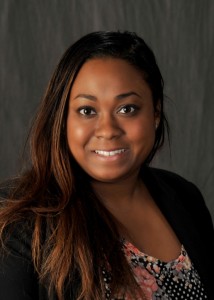Big Data has a monumental impact in a variety of fields, and it is here to stay.
Watson excels at rapidly analyzing so-called structured and unstructured data—information that lives neatly in databases and information that exists almost everywhere else. Unstructured data, which can be extracted from emails, texts, videos, tweets, posts, notes, etc., is far messier and requires sophisticated synthesis. With its superior natural language processing capabilities, Watson not only made sense of the Jeopardy! questions, but also found the information to solve them.
Now, instead of beating Jeopardy! contestants, Watson is being adapted to offer second opinions to doctors and their patients. Rather than reams of information on history and pop culture, Watson is being fed and taught to process millions of pieces of data from anonymized electronic medical records and other sources of medical information.
Watson is just one of the many examples that William Fuessler ’79, a global financial strategy and transformation leader at IBM Global Business Services, cites in describing the monumental impact of big data. Mr. Fuessler’s intimacy with big data comes from years of experience, first in accounting and now spearheading IBM’s U.S. Financial Services Strategy & Transformation consulting practice. He and the other 400 or so people in the division advise financial services companies—leading players in banking, insurance, and financial markets—on a variety of business issues.
One issue that Mr. Fuessler is particularly enthusiastic about, and where he sees the transformative potential of big data, is in the customer experience. What do buyers want and how can businesses capitalize on that knowledge? Businesses now have a wealth of data to mine—everything from information that comes in through call centers to the social media that is exploding in size and relevance. “There’s so much more data coming at us now, and it’s who can mine the data best that will be the winners in the marketplace,” Mr. Fuessler says.
He emphasizes, though, that the data is merely a tool for finding a solution. “When we talk to our clients about big data,” Mr. Fuessler says, “we say to them, don’t start with the data. What’s the question you’re trying to answer?”
Analytical skills are so vital in this era of assessment that IBM has broadened its recruiting strategy. “We’re looking for people who are broad thinkers,” Mr. Fuessler says, noting that they are often the graduates with degrees in the liberal arts and sciences. IBM has also ramped up its big data training, teaching new recruits to make statistical and analytical decisions based on structured and unstructured data.
At Adelphi, Mr. Fuessler majored in business. The foundation he gained, sometimes reluctantly, in accounting, statistics and computer programming ultimately enabled him to think more logically and analytically when solving business issues.
Mr. Fuessler believes that big data is truly a paradigm shift. He recently conducted a roundtable with CEOs of four leading companies. “Each one of those CEOs knew what big data was and not only could say big data, but actually knew what it meant,” Mr. Fuessler recalls. “It made me very convinced that it’s arrived and it’s here to stay.”
Cognitive Neuroscience and the Data Tsunami
“We used to operate in an environment of data scarcity…Now, you have open-source data, social media, so it’s like a data tsunami.” —Joeanna Arthur ’04

Joeanna Arthur ’04
In her searing memoir, Wave (Alfred A. Knopf, 2013), Sonali Deraniyagala depicts her life following the Indian Ocean tsunami of December 26, 2004, which killed her husband, two young sons and her parents. Her book has been acclaimed for bringing a tragedy that seemed unfathomable to most of us—the tsunami took approximately 230,000 lives—to a human scale.
The giant wall of water that slammed low-lying coasts in Indonesia, Sri Lanka and India stole lives and devastated infrastructure, making relief and recovery efforts especially challenging. A little-known U.S. agency, the National Geospatial-Intelligence Agency, or NGA, provided key information that enabled international agencies to rescue survivors and help the affected communities rebuild.
Geospatial intelligence is a decidedly inside-the-Beltway term to describe the monitoring of our planet through the collection and analysis of vast amounts of data from satellites, human signals, maps and weather radar, among other sources. On its website, NGA notes that warfighters—whether the U.S. Navy SEALS who captured Osama bin Ladin or the U.S. troops being drawn out of Iraq—are its primary concern.
NGA was created in 2003, just a year before Joeanna Arthur ’04 completed her studies in Adelphi’s Honors College and the Gordon F. Derner Institute for Advanced Psychological Studies and began pursuing her Ph.D. in psychology at The George Washington University. Today, Dr. Arthur is an NGA project scientist and, last December, was awarded the Presidential Early Career Award for Scientists and Engineers, the highest honor awarded by the U.S. government to early-career research scientists and engineers.
What is a psychologist doing at the NGA, you might ask. Dr. Arthur explains that she applies advances in basic vision science and cognitive neuroscience to imagery interpretation and geospatial analysis. “My research on a general level spans from the analysts’ understanding and comprehending of the imagery all the way to how can we create better tools for the analysts,” Dr. Arthur says. She notes that the gaming industry, which is enhancing machine-human interaction, is one source of inspiration.
Dr. Arthur is grateful to Adelphi—particularly the Honors College, which introduced her to thesis writing, and the Derner Institute, which piqued her interest in neuroscience—for enabling her to excel in graduate school and beyond. Right now, Dr. Arthur is NGA’s only cognitive neuroscientist, but she sees growing opportunities for others, especially given the Obama administration’s emphasis on neuroscience.
“We used to operate in an environment of data scarcity,” Dr. Arthur says. “You would only have so much intelligence of something. Now, you have open-source data, social media, so it’s like a data tsunami.”
Going Beyond Addition and Subtraction
Matthew Jordan ’07, a mathematical statistician at the U.S. Census Bureau, has seen firsthand the power of data. He works with the massive amounts of structured data that the bureau collects on a regular basis.

Matthew Jordan ’07
In 2011, he and nine colleagues used data from the 2011 American Community Survey—one of the bureau’s annual surveys—and the 2010 decennial census—the big census most of us are familiar with— to determine which states and counties needed to provide language to voters during the 2012 election. The Voting Rights Act of 1972 requires states and counties to offer language assistance at polling places, and the Department of Justice relied on the Census Bureau to reassess the distribution of translators.
“It was a project that was very interesting to me,” Mr. Jordan says. “It was something that I enjoyed quite a bit. I got to see a direct application of the data.”
The U.S. Census Bureau valued the work as well, as it awarded Mr. Jordan and his colleagues its Bronze Medal award—the bureau’s highest honor.
Mr. Jordan describes working at the Census Bureau as a dream realized. A math major at Adelphi, he gets to apply his education directly to his job, which is extremely gratifying. He is also surrounded by fellow “math minds” and supportive managers. “This is exactly what I wanted to do,” he says.
For further information, please contact:
Todd Wilson
Strategic Communications Director
p – 516.237.8634
e – twilson@adelphi.edu